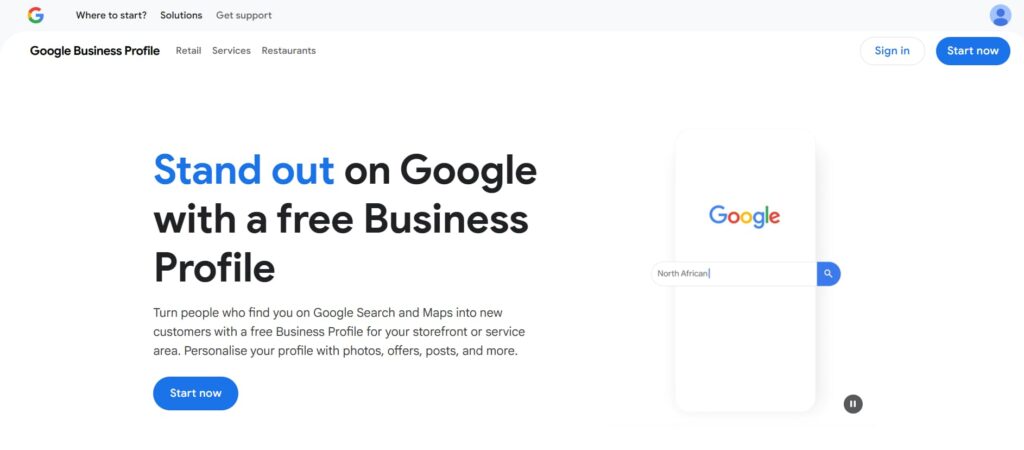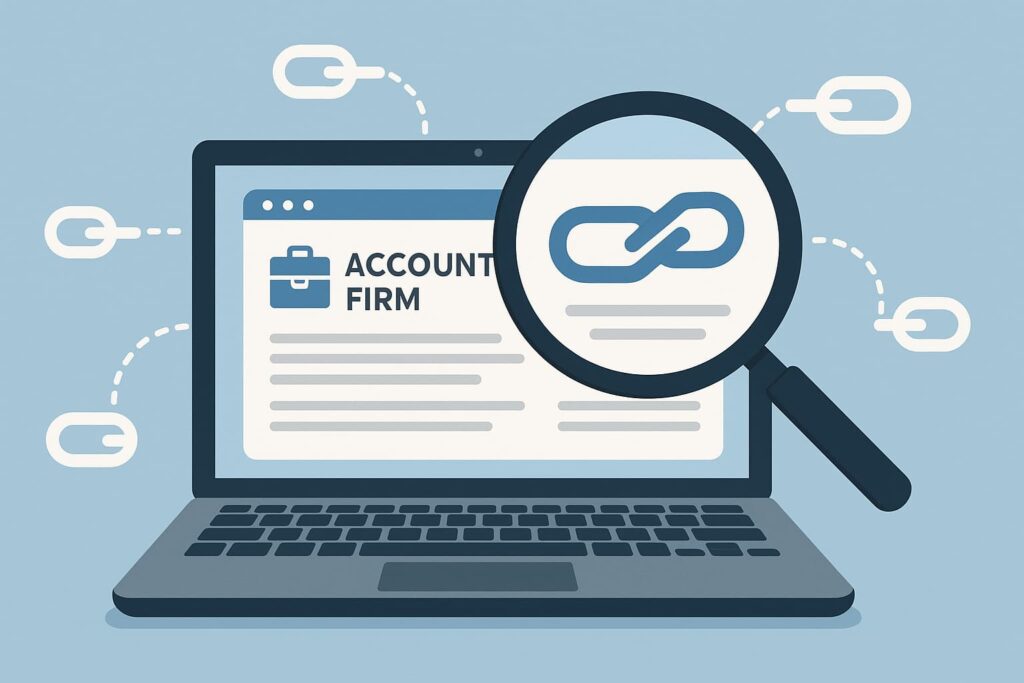For accounting firms, strong online visibility is critical. During tax season, competition is high, and many clients rely on Google to choose an accountant, CPA, or tax service. Search rankings depend heavily on backlinks.
Backlinks signal to search engines that a website is trustworthy and relevant. However, low-quality or non-compliant links can harm rankings and create risks for firms that must follow strict regulations.
Tax-specialized backlink audit services address these issues. Unlike general SEO audits, they focus on compliance, credibility, and visibility for accounting firms.
This article explains why backlink audits matter, how tax-specialized audits differ, and how firms can use them to improve their online presence and reputation.
Why Backlink Audits Matter for Accounting Firms
A backlink audit is not an optional SEO work for accounting companies; rather, it is a necessary practice for risk management and online reputation. The websites that connect to you have a direct impact on how search engines and potential clients perceive your organization. Here’s why regular audits are necessary.
1. Protecting Trust and Reputation
Accounting is built on trust. Prospects research firms online before making contact. If your site is linked from low-quality directories, spammy sites, or irrelevant blogs, it damages your credibility.
An audit ensures your backlinks come from authoritative and relevant sources, like industry publications or professional associations, which reinforces your firm’s professionalism.
2. Ensure Compliance and Mitigate Risk
Firms must adhere to strict regulatory standards. Backlinks from non-compliant industries (e.g., gambling, payday loans) can create ethical and compliance risks. An audit identifies and removes these harmful links, protecting your firm from potential reputational damage and ensuring your digital presence meets industry standards.
3. Improve Local Search Visibility
The majority of your potential clients are searching for “accountant near me.” To win that search, you need votes of confidence from other respected local businesses and organizations.
A backlink audit cuts through the noise. It shows you the exact gaps, like a missing link from the local business association or a neighborhood blog, so you can stop guessing and start building connections that actually get you seen.
4. Defend Against Negative SEO
Competitors or automated spam can intentionally point toxic links at your site to harm your search rankings. Without monitoring, you’re vulnerable. Regular audits help you quickly detect these malicious links so you can disavow them before they impact your performance.
What Makes Tax-Specialized Backlink Audits Different
Generic SEO audits evaluate backlinks based on metrics like authority, domain rating, and spam scores. While useful, this misses key elements accounting firms must consider. Tax-specialized audits address unique industry factors.
Industry Relevance
Tax-focused audits prioritize links from financial websites, business advisory blogs, chambers of commerce, and regulatory organizations. These are weighted more heavily than links from unrelated niches.
Compliance Review
Links are evaluated not only for their SEO impact but also for compliance with industry standards. If an accounting firm is connected to a non-compliant investment platform or an unreliable tax blog, it can damage credibility and reputation.
Local Authority Signals
Because most clients look for nearby services, local visibility is key. Specialized audits check whether your firm is listed on trusted local sources, including business directories, CPA associations, and state tax advisor registries, ensuring consistency and authority in regional search.
Ethical Link Placement
Firms should avoid link activities that appear deceptive or misleading. Tax-focused audits look for flaws including keyword-stuffed anchor text, irrelevant link placements, and artificial link patterns, which can impact both rankings and trust.
Choosing a Backlink Audit Service for Accounting Firms

When selecting a partner, look for:
- Experience with financial services and accounting firms;
- Proven methods for compliance-focused audits;
- Transparent reporting with clear action steps;
- Ongoing monitoring and support;
- Knowledge of local SEO for accountants.
Some specialized providers even integrate backlink audits with broader digital compliance checks, covering content accuracy, directory listings, and brand monitoring.
When choosing a partner, look for industry experience, compliance-focused methods, clear reporting, and local SEO knowledge. For example, 3XE Digital provides backlink audits and removal services that help firms eliminate toxic links and strengthen compliance with actionable recommendations.
Step-by-Step Process of a Tax-Specialized Backlink Audit
A tax-specialized audit follows a structured workflow designed for CPA firms. It moves from discovery to compliance checks and opportunity analysis, showing exactly what needs attention and why.
Each stage delivers clear outputs that can be prioritized by impact on rankings, compliance, and local visibility, keeping marketing and leadership aligned on an actionable plan.
Step 1: Deep Link Profile Scan
The first stage involves a complete crawl of your backlink profile using several trusted SEO databases. This ensures no link is overlooked and provides a full picture of all domains and pages that reference your website.
This stage assists accounting businesses in identifying both industry-relevant sources, such as financial blogs or CPA directories, and unrelated ones that may be undermining credibility.
Step 2: Quality Assessment
Each link is evaluated based on:
- Domain authority and trustworthiness;
- Industry relevance (accounting, finance, business services);
- Placement context (article, directory, comment, etc.);
- Anchor text distribution.
Step 3: Compliance Screening
Because accounting is subject to stringent ethical and regulatory requirements, backlinks must also be evaluated. This stage determines whether any linkages go to businesses that may jeopardize trust, such as gambling, payday loans, or unconfirmed financial scams. Screening backlinks for compliance ensures that your company’s internet presence supports, not undermines, its professional duties.
Step 4: Local Relevance Check
Local presence is essential for companies that depend on their local clientele. The audit looks for linkages verifying your existence in local company listings, chambers of commerce, and regional directories throughout this phase. Because they have the potential to distort local SEO signals, missing or inconsistent entries are reported.
Increasing the strength of local backlinks might make your company more visible to clients looking for local accountants.
Step 5: Toxic Link Identification
Not all backlinks are helpful—some actively harm your website’s reputation and ranking. Toxic links can come from spammy blogs, automated link networks, or irrelevant directories. During this stage, such links are identified and marked for removal or disavowal.
For accounting firms, eliminating these risks is especially important, as a toxic backlink profile can create both search engine penalties and reputational concerns.
Step 6: Gap Analysis
After harmful links are flagged, the audit shifts toward identifying opportunities. A gap analysis compares your backlink profile with those of competitors in your market. It reveals where other firms are gaining backlinks from trusted financial journals, trade associations, or tax-related publications.
These insights highlight areas where your firm can build authority and close the gap with higher-ranking competitors.
Step 7: Action Plan
The final stage of the audit provides a practical path. This includes how to remove toxic links, regain useful ones that may have been lost, develop partnerships with relevant organizations, and ensure correct listings throughout local and industry platforms.
With these specific recommendations, accounting companies may proceed from analysis to action, steadily enhancing both compliance and digital visibility.
Benefits of Backlink Audits for Accounting Firms
Backlink audits give accounting firms several key advantages:
- Build trust with links from credible sources.
- Boost rankings through quality financial and local backlinks.
- Reduce compliance risks by removing harmful links.
- Improve local reach with accurate directory listings.
- Support growth with clear steps for a stronger profile.
Best Practices for Accounting Firms After a Backlink Audit
A backlink audit is just the first step. The key is applying the findings to protect reputation, support compliance, and improve visibility. These practices offer a clear framework for keeping a strong backlink profile.
1. Build Industry Partnerships
By collaborating with tax blogs, business associations, and financial journals, accounting firms may acquire natural, high-quality backlinks. These collaborations not only help SEO but also establish the business as a reputable and well-known voice in the sector.
Businesses may establish long-lasting partnerships with relevant linkages by writing guest blogs, sponsoring events, or offering expert opinions. In the financial industry, this kind of outreach also boosts confidence among clients and peers.
2. Publish High-Value Content
Creating resources such as tax guidelines, compliance checklists, and thorough business accounting articles gives valuable material to connect to. High-quality content draws the attention of industry journals and other experts who find it beneficial for their own audiences.
- Write practical tax guides and compliance resources.
- Create articles that address common client questions.
- Offer in-depth analysis of accounting and business topics.
Over time, this strategy builds a library of authoritative resources that naturally generate backlinks and strengthen client trust.
3. Maintain Directory Accuracy

Keeping listings accurate across CPA directories, Google Business Profile, and local chambers of commerce is important for credibility. Errors or outdated details can confuse clients and signal unreliability to search engines, which hurts local SEO.
Regular reviews and updates make sure every mention of the firm works to build authority and prevent missed opportunities when potential clients are searching locally.
4. Monitor Links Regularly
Backlink profiles change as websites update content, remove pages, or add new links. Running smaller audits every few months helps identify harmful links, recover valuable ones, and keep results steady.
Ongoing monitoring also protects rankings from sudden drops and allows firms to adjust quickly if competitors or search engines shift strategies.
5. Encourage Media Mentions
Providing professional input to local news channels about tax season or financial difficulties increases authority and visibility. Media mentions frequently include high-quality backlinks from trusted sites.
- Offer tax season insights to local media;
- Respond to journalist queries with expert input;
- Build ongoing relationships with news outlets.
Consistent media interaction enhances brand identification and positions the company as a valued community resource.
Common Mistakes Accounting Firms Make with Backlinks

Even established accounting firms can make mistakes when managing their backlink profiles. In trying to improve search rankings, some rely on risky shortcuts or ignore obvious issues, which can harm credibility. Identifying these problems early is important for maintaining trust, staying compliant, and supporting long-term growth.
Common missteps include:
- Ignoring compliance risks—linking to questionable tax advice sites can damage trust.
- Relying on low-quality directories—outdated or spammy directories do more harm than good.
- Using manipulative anchor text—over-optimized anchors like “best tax accountant cheap” look unnatural to search engines.
- Failing to disavow toxic links—ignoring harmful links allows them to drag rankings down.
- Neglecting local signals—without local backlinks, ranking for “accountant near me” becomes difficult.
Conclusion
Backlink audits are not optional for accounting firms—they are a strategic necessity. A tax-specialized audit goes beyond generic SEO metrics, ensuring compliance, protecting trust, and strengthening local visibility.
By investing in backlink audits, accounting firms can:
- Build credibility with clients.
- Improve rankings for tax-related searches.
- Safeguard their reputation in a regulated industry.
- Drive more client inquiries during critical tax seasons.
For businesses committed to development and compliance, the message is clear: your backlink profile is as vital as your financial statements.

